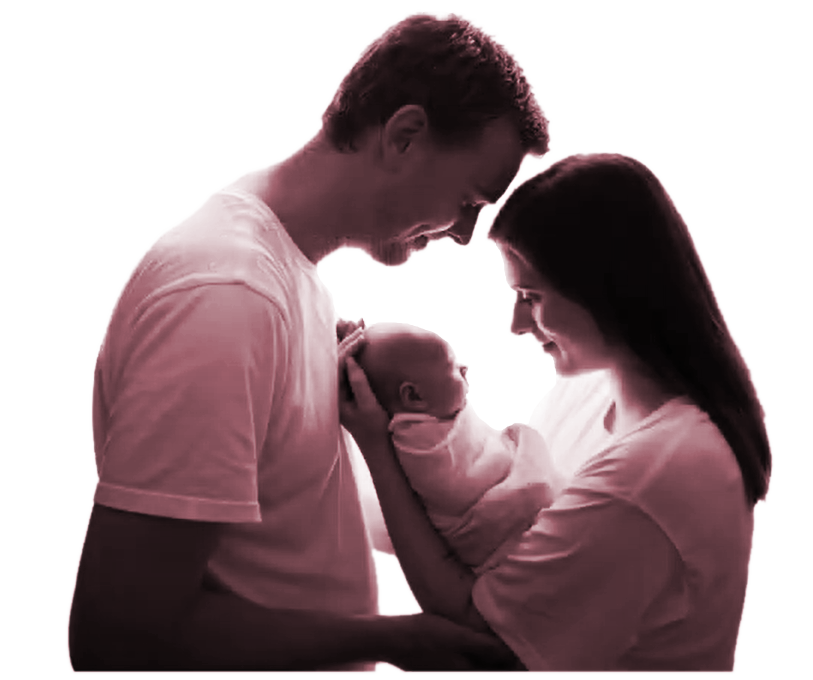FINDING OUT
Whether you’re an expecting or new parent, it is normal for you to feel a range of emotions from joy to anxiety. When you first find out that your baby has a hand difference, you may feel shocked, sad, guilty, grief-stricken, angry or embarrassed. Feeling this way is normal.
As you prepare to welcome your child into your family and community, it’s a good time to reach out. Connecting with parents in similar situations, support groups and health professionals can help you gain knowledge and tools to make informed decisions and be confident in raising your baby.

Hand Difference Statistics
The term ‘hand difference’ includes a wide range of diversities in hands and/or arms. It can include upper limb differences that people are born with (congenital), and upper limb differences that are acquired throughout life.
The causes of congenital hand differences are multifactorial, meaning that they can be caused by many different environmental and biological interactions. Most hand differences happen simply by chance. According to statistics in Australia, around 600 babies are born with a hand difference each year.
Frequently Asked Questions
What does having a hand difference mean to your child?
You may have lots of questions about your child’s future once you have found out that they have a hand difference. Aussie Hands parents say that they wondered about things like – how will my child manage everyday tasks like feeding, playing and dressing themselves? How will my child be treated? How can I make sure my child grows up to be confident and resilient? Will my child be able to play sport and choose any career?
 Arlo’s mum Aimee shared their story and her key message was: ‘I contacted Aussie Hands about Arlo’s hand ‘deformity’ and I remember that when Elizabeth replied she had changed it to ‘difference’. That stuck with me.
Arlo’s mum Aimee shared their story and her key message was: ‘I contacted Aussie Hands about Arlo’s hand ‘deformity’ and I remember that when Elizabeth replied she had changed it to ‘difference’. That stuck with me.
I spoke to Elizabeth when I got home and I remember her telling me that I would one day not even notice it. I didn’t believe her because it was all I saw. She said he was not just a hand, he was Arlo with a hand difference. I focused on that and as he got older and started to develop a personality it became a lot easier to see.’
How will a hand difference impact my child’s future?
Adults with hand differences reflect that their parents might have thought they were missing something, but as a child they didn’t feel like they were missing anything because they were born that way. Babies and children with hand differences normally achieve all the usual milestones.
Children with hand differences find their own way. They might take a little longer – and the way they function might not be exactly like other children, but they will figure out what works for them.
‘Even at six months, Amelia was already adapting, grabbing her bottle in the crook of her arm.’

Developmental Milestones – What Can You Expect?
Some typical milestones are listed below, along with some of the ways that babies with hand differences adapt:
Rolling: Babies figure out the best way to roll for their bodies. Sometimes they have a preference to roll to one side.
Hear From Aussie Hands Parents
Laura explains her feelings after finding out about Harper’s hand difference.
Nick shares how his thoughts about Elena’s hand difference changed over time.
Considering Medical Options
 Depending on your child’s hand difference, there may be surgical options that are recommended by specialists. Specialist doctors can advise on what is possible based on your child’s specific hand difference and needs. Options can include splitting fingers, removing nubbins, and toe-to-hand transfer. Aussie Hands parents have provided the following suggestions on what they did when considering different options:
Depending on your child’s hand difference, there may be surgical options that are recommended by specialists. Specialist doctors can advise on what is possible based on your child’s specific hand difference and needs. Options can include splitting fingers, removing nubbins, and toe-to-hand transfer. Aussie Hands parents have provided the following suggestions on what they did when considering different options:
● Ask your surgical team as many questions as possible, and seek other opinions if you don’t feel 100 percent comfortable with the answers.
● Connect with other families via the Aussie Hands Facebook group or make a booking with a parent through the Peer Support Network to find out more about their experiences.
According to Dr Katherine Olsson, Clinical Psychologist/ Neuropsychologist from the Queensland Paediatric Rehabilitation Service, the best way to cope with the information about your baby being born with a hand difference is to reach out to people in your network.
‘Reach out to family and friends but also remember you can talk with your paediatrician or your limb difference team and other medical professionals. Be prepared to ask them questions, it doesn’t matter how strange or difficult your questions are.’
Social Worker from the Queensland Paediatric Rehabilitation Service, David Weatherburn adds:
‘It’s important to have open communication lines with your family and partner and get back in touch with friends.’
If you have concerns and you do not know how to connect with medical professionals, an occupational therapist (OT), physiotherapist, prosthetist or orthopaedic surgeon, your GP or Maternal & Child Health Nurse are a good source for recommendations.
Most states in Australia have Limb Difference Clinics – to find the closest limb difference clinic to you, it might be worth asking your GP for a referral!










